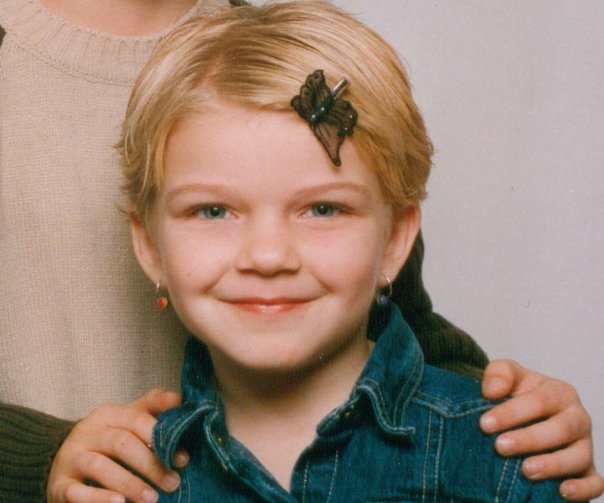The woman convicted of killing eight-year-old Tori Stafford has been transferred from a federal prison to a healing lodge in Saskatchewan.

Terri-Lynne McClintic, who was 18-years-old at the time, was convicted of first-degree murder in the 2009 rape and killing of the Ontario girl and given life without parole for 25 years in 2010.
She was reportedly transferred from the medium-security prison in Ontario to the Okimaw Ohci Healing Lodge run by Correctional Service Canada (CSC) in December.
WATCH: The father of Tori Stafford has posted a Facebook post to the Prime Minister, asking him to send Terri-Lynne McClintick back to prison. Kamil Karamali reports.


What are healing lodges?
The federally-run facilities offer a “holistic and spiritual” approach for offenders, according to CSC. Healing lodges for female offenders are minimum- and medium-security facilities, and for men, they are minimum-security facilities.
CSC said the healing lodges are mainly for Aboriginal people, but “non-Aboriginal offenders can also live at a healing lodge. However, they must choose to follow Aboriginal programming and spirituality.”
The facilities are a circular spiritual lodge where elders hold teachings, ceremonies and workshops for the offenders. The goal is for inmates to heal and reconnect with Indigenous culture while serving their sentence.
WATCH: The history behind Hands of Mother Earth Healing Lodge

Some facilities offer vocational training, instruction in Indigenous language and guidance for women on how to live independently by cooking, doing laundry and doing outdoor maintenance chores.

Get breaking National news
Other healing lodges focus on relationships, loss, healing and substance abuse.
“In all cases, we thoroughly assess an offender’s risk to public safety before a decision is made to move him or her to a healing lodge,” a CSC spokesperson said.
The offender’s security level is based on how the offender will adjust to the institution and the risk of escape and public safety.
WATCH: Father of Tori Stafford speaks up against relocation of her convicted killer. Mark Carcasole reports.
.jpg?w=1040&quality=70&strip=all)
When were they created?
The concept of healing lodges was put forward by the Native Women’s Association of Canada in 1990. Members of the Indigenous community were concerned about the over-representation of Indigenous people in Canada’s correction systems and believed another method should be looked at.
In 1992, Canada passed new legislation to allow Indigenous communities to provide correctional services.
READ MORE: Transfer of Tori Stafford’s killer to healing lodge will be reviewed, victim’s father slams transfer
Okimaw Ohci where McClintic is now staying is in Maple Creek, Sask., and has been open since 1995.
In 2012 it had 30 beds, 65 employees and contained single and family residential units, as offenders may have their children stay with them. Each unit has a bedroom, a bathroom, a kitchenette with an eating area and a living room.
There is no kind of fence around the facility.
There are also eight more healing lodges open across Canada, which use Indigenous concepts of justice and reconciliation to help rehabilitate offenders.
WATCH: What are Correctional Service Canada healing lodges?

How do they operate?
Healing lodges operate in one of two ways.
They may be funded and operated by CSC and staff, or they may be funded by CSC and managed by community partner organizations. In the second case, community partner organizations sign an agreement with CSC under Section 81 of the Corrections and Conditional Release Act.
There are currently nine CSC healing lodges across Canada. Four are managed by CSC and five under Section 81.
WATCH: First Nations members question safety of ‘healing lodges’ after escape of dangerous offender

Do local First Nations have a say in inmates?
On Wednesday, the Nekaneet First Nation in Saskatchewan, which houses the Okimaw Ohci healing lodge, released a statement saying it was surprised by the decision to move McClintic to the lodge.
Chief Alvin Francis told Global News that First Nation elders used to have input on what inmates were chosen for the lodge, but their funding was cut about six years ago.
“It is quite shocking because of the crime, but we don’t have a process where we are involved anymore, of who they transfer to our facility,” he said. “We have no say in that.”
He added that as a father and grandfather he does think is it “quite horrendous” that McClintic is living in his community, especially since the First Nation elders did not have a say on her being transferred.
- Former Calgary gymnast speaks out in hopes of changing toxic culture of sport
- Calgary police host town hall on extortion threats targeting South Asian community
- Record-setting temperatures in Alberta prompt warnings about wildfire danger
- Alberta junior hockey players killed in crash to be memorialized with stickers
“With no fences…she can walk out right now,” Francis said. “I mean that’s up to her.”
Outrage over McClintic’s transfer
McClintic’s move to the healing lodge has sparked public outrage, especially from Tori Stafford’s family.
“Less than 10 years into her sentence, she’s already in a healing lodge out in Saskatchewan,” Stafford’s family told Global News, “where she is living better than probably about a third of Canadians right now. It’s very upsetting.”
Stafford’s family has planned a rally for Nov. 2 on Parliament Hill in Ottawa to protest the transfer.
Conservative Leader Andrew Scheer has also urged the Liberals to immediately reverse the transfer during Question Period on Wednesday. Trudeau accused Scheer of playing politics with a tragic situation, noting McClintic was classified as a medium security inmate in 2014 and that hasn’t changed.
Public Safety Minister Ralph Goodale said he has ordered a review of the transfer, he said he does not have the authority to reverse it.
WATCH: Trudeau slammed about transfer of Tori Stafford’s killer to healing lodge







Comments